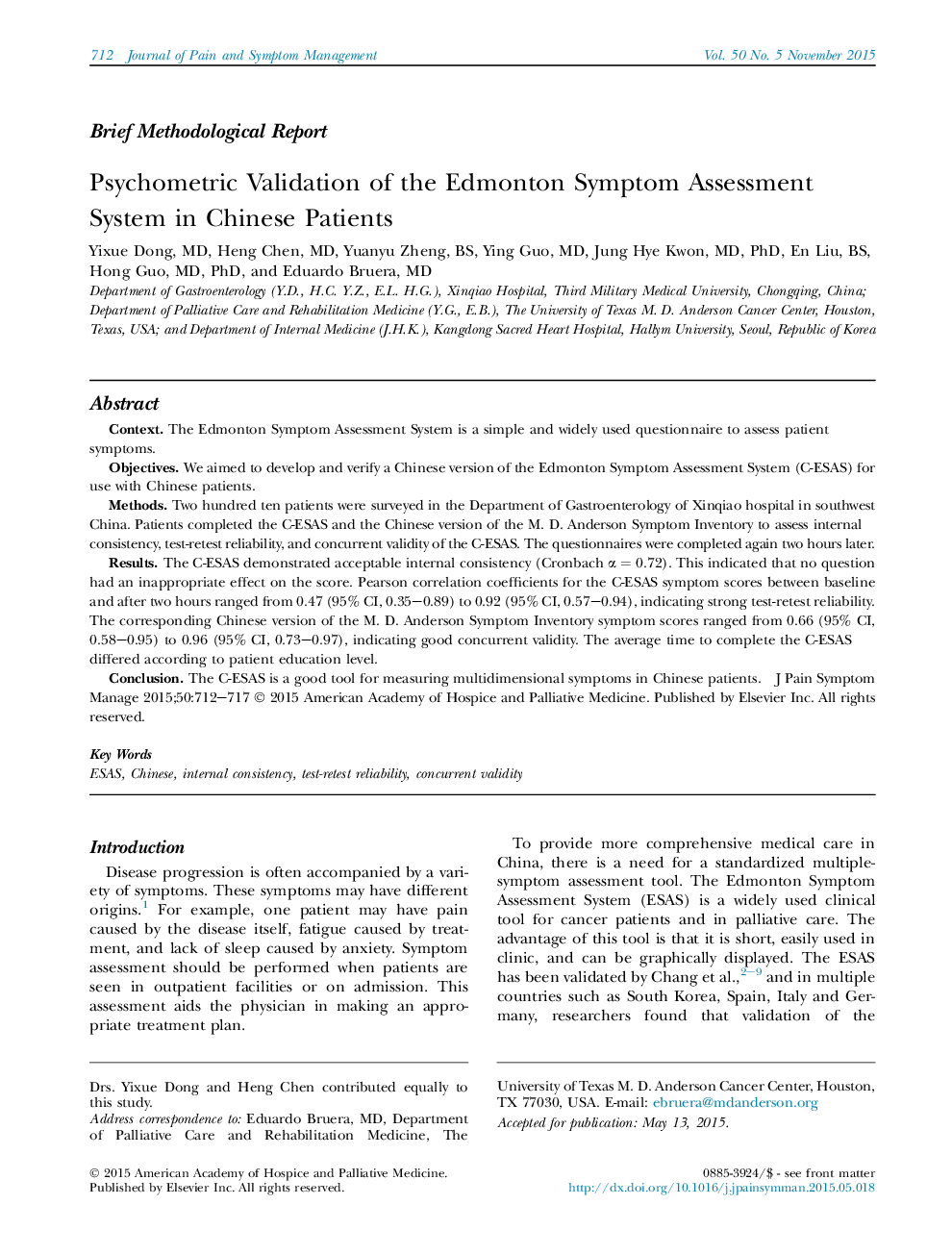| Article ID | Journal | Published Year | Pages | File Type |
|---|---|---|---|---|
| 5881334 | Journal of Pain and Symptom Management | 2015 | 8 Pages |
ContextThe Edmonton Symptom Assessment System is a simple and widely used questionnaire to assess patient symptoms.ObjectivesWe aimed to develop and verify a Chinese version of the Edmonton Symptom Assessment System (C-ESAS) for use with Chinese patients.MethodsTwo hundred ten patients were surveyed in the Department of Gastroenterology of Xinqiao hospital in southwest China. Patients completed the C-ESAS and the Chinese version of the M. D. Anderson Symptom Inventory to assess internal consistency, test-retest reliability, and concurrent validity of the C-ESAS. The questionnaires were completed again two hours later.ResultsThe C-ESAS demonstrated acceptable internal consistency (Cronbach α = 0.72). This indicated that no question had an inappropriate effect on the score. Pearson correlation coefficients for the C-ESAS symptom scores between baseline and after two hours ranged from 0.47 (95% CI, 0.35-0.89) to 0.92 (95% CI, 0.57-0.94), indicating strong test-retest reliability. The corresponding Chinese version of the M. D. Anderson Symptom Inventory symptom scores ranged from 0.66 (95% CI, 0.58-0.95) to 0.96 (95% CI, 0.73-0.97), indicating good concurrent validity. The average time to complete the C-ESAS differed according to patient education level.ConclusionThe C-ESAS is a good tool for measuring multidimensional symptoms in Chinese patients.
